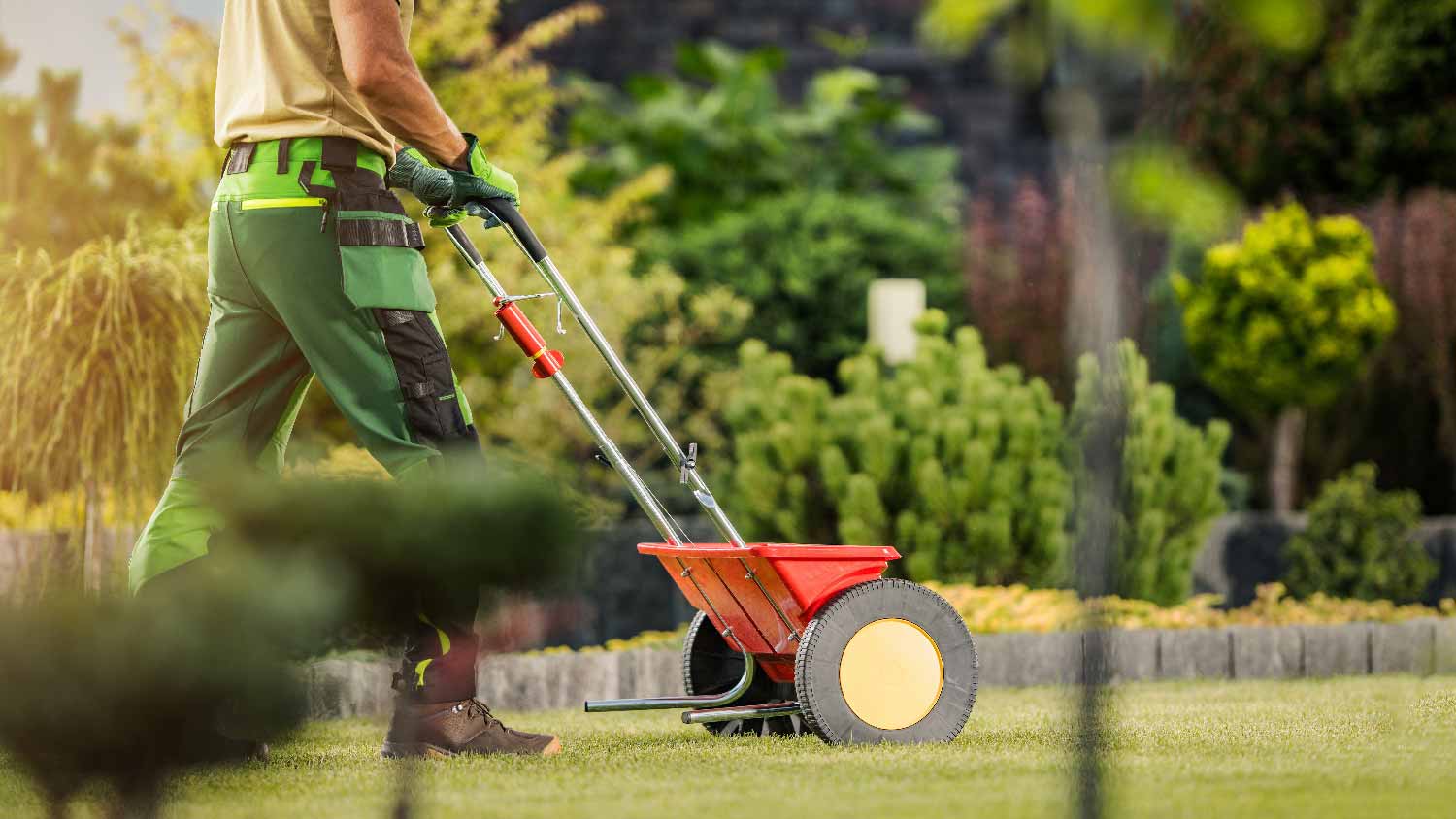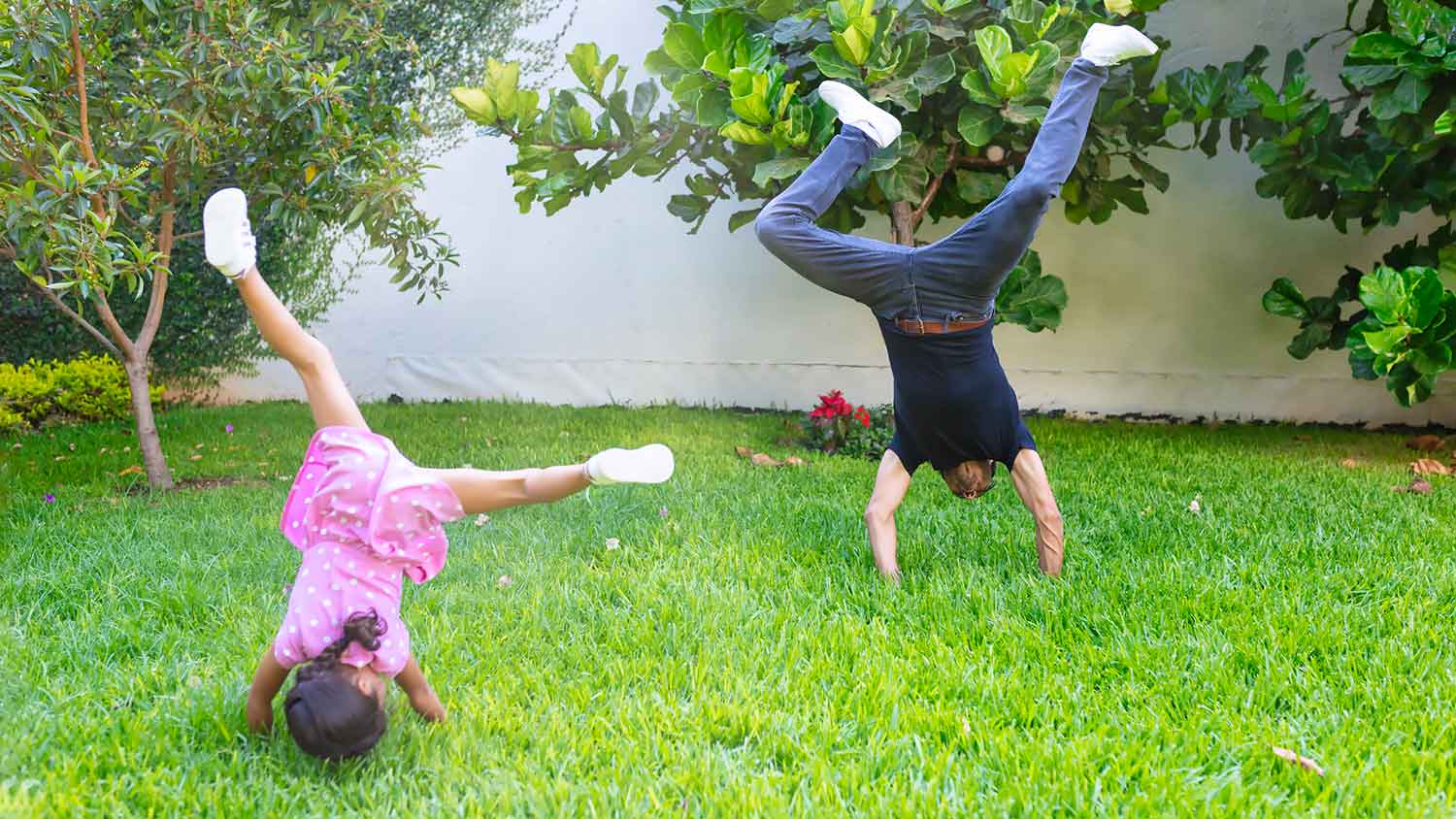
Removing an old lawn is often necessary to plant new grass or build a new outdoor structure. Find out what to budget for your lawn removal cost.
Know before you mow


Mow before you aerate the lawn to fully benefit from aeration and prevent debris from building up.
Lawn mowing just trims the grass; lawn aeration is like a deep-root treatment that creates healthier soil and grass.
You do need to mow the grass post-aeration, but wait until the grass is 2 to 3 inches tall.
Lawn care can be a complicated undertaking. Lawns are complex ecosystems that require a tailored maintenance routine of hydration, mowing, aeration, and more. “Should you mow after aeration?” is a common question that lawn enthusiasts ponder over while they think about how they can get the greenest, lushest lawn ever. While you can do both on the same day, it's best to mow before aeration and wait a while until mowing afterward.
Mowing the lawn is an important part of post-aeration lawn care. However, you need to wait two to four weeks before it’s safe to mow without losing the benefits of aeration.
How long it takes your lawn, specifically, to be ready for mowing depends on the climate and the type of grass you have. You don't want to wait too long between mowings, or else debris, thatch, and clippings will build up too much. This is why it's essential to mow before you aerate so that you can safely mow again in a few weeks. After a few weeks pass and your grass is 2 to 3 inches tall, that's when it should be safe to mow again.
Lawn aeration is key to achieving that lush carpet most people desire. Soil underneath the grass gets easily compacted by people, pets, and weather. Aeration enables the soil to breathe again by poking holes in it, loosening that compacted soil, and thinning the thatch layer.
Regular lawn aeration promotes stronger and deeper grass roots that will grow into healthy and verdant blades instead of brittle straw. Aerating improves drainage and prevents pools from forming, sending water deep into the soil where it belongs. Plus, the soil plugs left over on the surface will eventually break down and absorb back into the soil, giving your grass’s roots more nutrients.
Because of these benefits, you need to mow the lawn before aerating it, not after. The post-aeration process is what helps your lawn reset from crusty soil, thirsty grass, and other issues. If you mow the lawn after aerating it, you can ruin your lawnmower on the soil plugs, and you may not receive all the benefits of aeration if these plugs get knocked loose.
For most homeowners, your lawn should be aerated once a year. Knowing when to aerate your lawn ultimately comes down to your household size, how much foot traffic your yard gets, and the soil types and conditions where you live.
Depending on these factors, you may only need aeration every two or three years. If you have a large household, lots of pets who go outdoors, or frequently host barbecues that could fit entire townships, you may need aeration more than once a year.
It isn’t a good idea to mow right after aeration. You’ll want to give that a few weeks until the grass is tall enough. But doing the following after aeration is complete ensures that you have a healthy, glowing green lawn in the near future.
Once your lawn is aerated, the first thing that you want to do is seed it. This is what produces that fluffy, manicured lawn look you see in all those home magazines. Don't be shy: Sprinkle those seeds like they're the best seasoning on your favorite food. Overseeding your lawn creates luscious growth of new grass.
The point of aeration is loosening up the soil. The only problem with this is that the soil can dehydrate quickly once it's exposed to the sun. This makes aeration during warm weather challenging, especially if your lawn has intense sun exposure.
Your lawn needs immediate watering after aeration so that the soil doesn't get all dried out, compacting and putting you back at square one. Good hydration makes for healthy grass roots that will flourish, so consider investing in a good-quality sprinkler system for your lawn.

After seeding and watering the lawn post-aeration, use a high-quality fertilizer with your grass. Slow-release fertilizer is best. One of the goals of lawn aeration is to make the soil more absorbent of nutrients. The channels that aeration creates in the soil help those nutrients reach the roots.
If you've ever seen those flags warning you to stay off the grass, it isn't always a chemical treatment. Foot traffic causes lawns to need aeration in the first place.
The holes created in the aeration process need a couple of weeks to heal and close. Hosting a birthday party outside isn't the best idea—neither is parking vehicles or equipment over a recently aerated yard. You'll lose all the benefits of aeration if the soil hasn't had a chance to settle.
You'll need a lawnmower to mow your lawn yourself. A basic push lawn mower costs about $200, and a ride-on mower runs $1,500 to $5,000, not factoring in the cost of gas, maintenance, and repairs.
If you don't want to purchase a lawnmower and would rather pay a local lawn care service or handyperson to take care of it, the average mowing service is around $120. Depending on the size of your lawn and where you live, the cost can range from $50 to $210.
A local lawn aeration service is often a better deal than aerating the lawn yourself, although DIYing is an option. An aerator needs to be rented by the hour for about $100 per day. If you need more time than expected, you can pay far more to rent the aerator for the day than what you'd pay for professionals. This doesn't include deposit and damage fees if you use it incorrectly.
There are different types of aeration, like liquid aeration, spike aeration, and core aeration, and they vary in cost based on the local climate and the size of your lawn. For most people, professional lawn aeration costs about $175 but could reach just over $200.
From average costs to expert advice, get all the answers you need to get your job done.

Removing an old lawn is often necessary to plant new grass or build a new outdoor structure. Find out what to budget for your lawn removal cost.

How much it costs to rent a lawn aerator depends on what kind you rent and how long you rent it for. Read on for the full details.

The cost to reseed a lawn can vary depending on the size of your yard and the condition of the soil. We’ll help you figure out the true cost of reseeding or overseeding your lawn, along with whether or not you should hire a professional.

If you’re dreaming of growing a thick, healthy lawn, one of your key questions will be: How much grass seed do I need? Learn how to calculate it in this guide.

When it comes to weighing the pros and cons of sod vs. seed, there’s a lot to consider. See how they stack up and which is the best choice for your yard.

Pine straw is affordable and eco-friendly, but how does it compare to other types of mulch? Find out the key differences between pine straw vs. mulch.